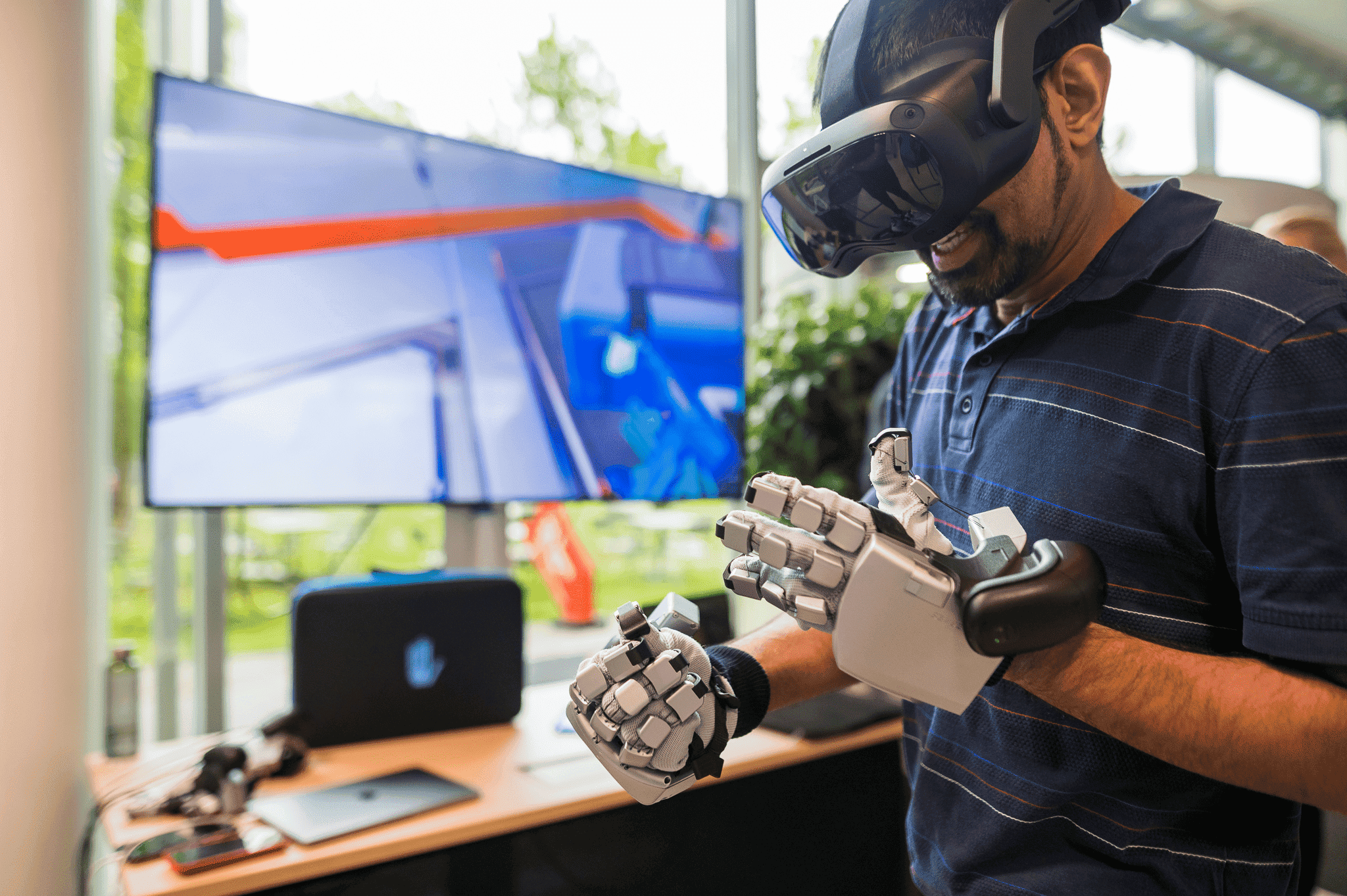
About AVATAR MEDICAL
- Founders: Mohamed El Beheiry, Jean-Baptiste Masson, Elodie Brent-Litzler, Xavier Wartelle, Marie Buhot-Launay
- Founded in: Frankrijk
- Employees: 11
- Money raised: €2.5 million
- Ultimate goal: AVATAR MEDICAL aims to unleash the power of medical images and make them usable for surgeons and to all those involved in patient care: radiologists, oncologists, residents and patients.
Viewing a digital version of a patient’s anatomy in Virtual Reality (VR) in order to gain a clear picture of the problem and prepare the patient for surgery. AVATAR MEDICAL makes this possible. How does it work? Marie Buhot-Launay explains.
Also interesting: Omgyno breaks taboos and makes gynecology safer and better
How does it work?
“An MRI or CT scan is made of the patient. That scan is then converted to a 3D version of the patient’s anatomy on a laptop using our software. This happens in real time and without the need for an Internet connection. The surgeon and patient can then use VR glasses to look around the body and see specific areas in more detail. For example, the site of the cancer located in a bone can be viewed in detail. Currently, an estimate of how much bone needs to be removed is made using only a 2D scan. With our software, the surgeon gets a better picture of the cancer and can perform surgery more confidently. In addition, the patient has a better understanding of what is going to happen during surgery.”
What makes your start-up so relevant?
“VR is already used in medicine. For example, a surgeon (in training) can practice heart surgery. Or during surgery, a patient is distracted and at that same time reassured thanks to VR. But reproducing a scan of a patient in 3D and viewing it with VR glasses is not quite there yet. We think VR can be used more extensively in patient care. Maybe a surgeon has already practiced an operation in virtual reality. Then a surgeon can use our software to prepare for that specific operation.”
Has AVATAR MEDICAL been tested yet?
“About one hundred surgeons have tested out our product so far. These are mainly surgeons in the fields of vascular surgery, oncology and cardiology. We have also presented our software to hospitals in France and America. A hospital specalized in breast cancer has been testing AVATAR MEDICAL for two years and now wants to buy it to conduct more research.”
What are some of the obstacles that you are coming up against?
“The scientific world still has to get used to the idea of virtual reality and VR glasses. It still feels more like a gadget that’s used during gaming. We want to do more clinical research to show the medical community that using AVATAR MEDICAL for patient care can actually help. Other than that, we are not certified yet, but we will be in the coming year. We hope that patients and surgeons will be using AVATAR MEDICAL within two to three years.”








